#polish illustration
Text

#kasiagala#illustration#artists on tumblr#ink#art#flowers#nature#ilustracja#polish illustration#motivational#motivation#self care#vegan#strong#strąk
415 notes
·
View notes
Text
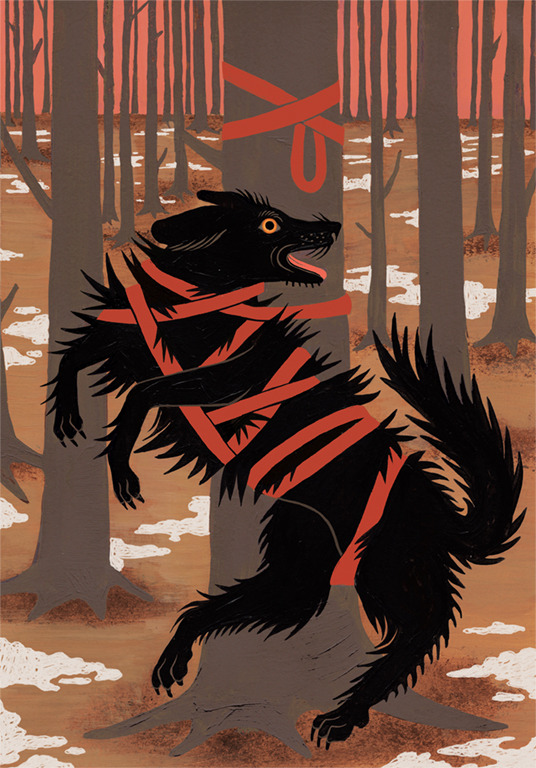
"Ręce zegarmistrza" (a story by Joanna Bator). An illustration I did for Magazyn Pismo (december issue). It was for a short story about an old clockmaker who finds an abandonded dog in the winter forest. How this dog affects his life?
Art Director: Karolina Mazurkiewicz
#editorial#editorial illustration#short story#dog#abandoned dog#ilustracja#illustrazione#illustrator#polish illustration#traditional art#printed illustration#magazine
115 notes
·
View notes
Note
oh my god, the fragment of your short story is very cool and your illustration looks beautiful😍😍😍. I'm always extremely happy when I see Slavic mythology somewhere (I'm from Slovakia). I keep my fingers crossed for your work, it will definitely be amazing
ps: I wish you a early recovery
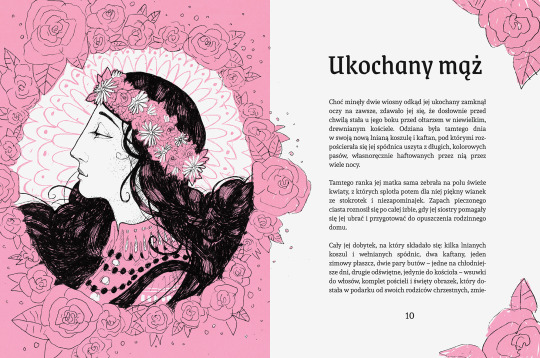
Beloved Husband
Especially for you, the entire story is translated below
[ warnings: character death, violence, progressive madness, depression, mourning ]
Although it had been two springs since her beloved closed his eyes forever, it seemed to her that just a moment ago she was standing at his side in front of the altar in a small wooden church. She was clad that day in her new linen chemise and kaftan, under which stretched her skirt sewn from long, colourful strips, embroidered by her own hands over many nights.
That morning, her mother herself had collected fresh flowers in the field, from which she later wove a beautiful garland of daisies and forget-me-nots for her. The smell of baking cake spread throughout the room as her sisters helped her dress and prepare to leave her family home.
All her belongings, which consisted of several linen shirts and woollen skirts, two kaftans, one winter coat, two pairs of shoes − one for colder days, the other festive, only for church − hair pins, a set of bedding and a holy picture she had received as a gift from her godparents, fit easily into a small wooden chest decorated with painterly ornaments.
Her beloved was beautiful, joyful and kind, his lips curving into a lazy smile at the sight of her, for he had loved her ever since she could remember. He called out to her when she returned from the fair, when she left church with her parents, he made her laugh by looking at her over the fence as she fed her geese, by telling her made-up tales and legends.
He would come to her parents with gifts, wishing them to look upon him with a more favourable eye, as he was poorer than they were − she was the daughter of a respectable farmer, while he was the son of a simple serf peasant apprenticed to a blacksmith.
Although her guardians at first regarded him with disapproval and reserve, they eventually recognised his industriousness, which also brought him a tangible income. He spent days and nights in the forge, creating things that were not only useful and durable, but also beautiful, appreciated by the villagers and the heirs of the manor houses.
Without delay, he came to the aid of his future parents-in-law when the hinges of their doors and shutters began to loosen and fall off. He forged new ones for them, beautifully fitted, with indentations and swirls, which they later showed off to their neighbours. She watched it all from afar, daring to offer him only her warm, happy smile and a gratitude that filled his heart with fervent hope.
− Wait for me, pretty dove. − He called out to her then, and she laughed, not even thinking of marrying another.
His approach full of patience and understanding eventually won the hearts of her parents. Her father decided, after some thought, that it was good to have such a swift, hard-working son-in-law, who, in addition, was cordial to the women.
He believed that he would certainly be a good and gentle husband, who would not hit or shout at his daughter, and who would also gladly drink vodka with his father-in-law, and would conduct a conversation well, as his mind was sharp and enlightened.
She knew that she had caught God by the feet when they finally agreed to give him her hand, and she did not hide her joy. She thanked her Lord during every evening prayer for the fact that she did not have to marry a drunkard, a scoundrel, but a kind, handsome, hard-working young man, at the sight of whom she felt warmth melt through her heart.
Not even one spring of their marital happiness had passed when her beloved fainted, having returned from the forge all hot and fiery. He coughed terribly and babbled, only making it home with the help of their neighbour. They laid him on the bed together, wondering what to do. Fear then overtook her and she immediately sent for an herbalist who lived a few huts away.
The woman arrived in the evening and, without saying anything or demanding payment, prepared water over the cooker by throwing dried leaves and herbs into it, muttering something at the same time. After these mysterious procedures, she gave her decoction to her husband, ordering him to drink.
She rejoiced, for the colours returned to his countenance, for life returned to his members, for he recognised her, calling her his pretty dove.
Her heart was filled anew with hope. Lying by his side at night, she prayed fervently, thanking God for his grace.
Only in the morning, when the first rays of the sun woke her up, wanting to attend to her daily chores and prepare his morning meal, did she feel that the body lying next to her was cold and stiff.
She was afraid to look at him, and when she finally did, she saw his face, pale and blue, his lips parted slightly, as if he were in fact still asleep. She tried to wake him, at first with a whisper, then with cries and wails, clamping her fingers over his body, but his eyelids never opened again.
She couldn't name what was happening to her. It seemed to her as if her speech had been completely taken away. Her body was left without strength, her mind became blank, dulled. She lay next to him, looking at his face, holding his cold hand in hers, unable to let go of the thought that the only thing left of him was his body.
She didn't understand what her mother was saying, stroking her cheeks and shoulders as they stood over his grave on the day of his funeral. She stared at the simple wooden cross stuck into the fresh, damp earth, listening to the women wailing and crying raucously around the coffin, chanting mournful hymns that only increased her despondency.
It seemed to her that her mind was foggy and sluggish. She drank, she ate, she did her chores, but she did not feel or experience anything. Her body was as if in a state of prolonged shock. In her mind there was still the conviction that her husband would cross the threshold of their home as he did every evening, that he would take her in his arms, speaking of his longing, that they would sit down to supper together, recounting what the day had brought them.
Her parents, seeing the impact of her bereavement and such a sudden loss, ordered her to return to the family home, which she did. From then on, she helped them with their daily chores, as she had done when she was still a maiden.
She would speak to them and be in their company, but her mind seemed to be out of her body, the emptiness that filled her began to be slowly replaced by a progressive rage and irritation, as she noticed that everyone had begun to forget about him. They laughed and smiled, got drunk and danced as he lay there, deep underground, alone.
Shrill thoughts flashed through her head as she lay alone at night under her quilt. Her heart squeezed with pain at the notion that perhaps the gravedigger had not buried him deep enough and his body would be desecrated by wolves or stray dogs or, God forbid, her poor beloved would wake up in his wooden grave and be unable to get out, driving his nails helplessly into the wooden lid.
She would cry aloud then, burying her face in her hands, holding her thoughts and pains deep inside her, feeling that no one else would understand her suffering, that only he, her dearest, if he were still alive, could comfort her.
It was then that she heard him for the first time since the day he closed his eyes forever: the loud, clear rustling of the grass and the quiet cracking of the branches beneath his feet.
She rose quickly, feeling the aggressive, chest-shattering pounding of her heart. A cold sweat ran down her back as she leaned out uncertainly to look out of the window.
There was no one in the courtyard.
She sat still for a moment, feeling a tightness in her throat at the thought that there was a graveyard beyond the woods overlooking her small room.
The next day she lay down to sleep faster than usual, excusing herself to her family for being unwell, feeling a pleasant tingling in her fingers and excitement at the thought that perhaps her beloved would visit her again, give her some sign, tell her what he needed. No one came, however, and salty tears of regret and disappointment ran down her cheeks as she lay, facing the window, watching the first rays of the sun.
She wandered off to the cemetery in the morning, explaining to her relatives that she wished to place fresh flowers on her late husband's grave. However, when she arrived at the site, she found to her disbelief and dismay that although grass should have grown on the grave long ago, the sand on it was still wet and fresh, as if he had been buried only the day before.
Walking back home along the dirt road, wrapping herself in a warm woollen shawl, she thought of her grandmother's stories. Of how people who had died, called wraiths, rose from their graves to haunt their families, peering down on their children and placing cold, corpse-like kisses on the lips of their wives and husbands.
At this thought she felt heat in her lower abdomen, a pleasant tickling sensation engulfed her fingertips and lips, and she imagined that her beloved had come to her then, that night, wanting to prove to her that he remembered her, that he loved her and could not leave without her.
The realisation that he could wander still in the world without knowing a holy rest both frightened and delighted her at the same time, that their love could be stronger than death, that his desire to stay with her was more important to him than the will of God himself, who had called him to join him.
She stopped and trembled as she heard a loud rustling in the depths of a field filled all around with tall, golden wheat. She lifted herself up on tiptoe, feeling the rumbling of her yearning heart, looking around carefully. Her breathing became raspy and loud, full of excitement.
− My love? − She heard her own trembling, warm voice, sounding as if a mother was calling her child, wanting to give him courage.
However, she saw nothing, nor did she hear any reply.
Nevertheless, the conviction that her husband was still prowling the earth and watching her was growing stronger within her. Candles would suddenly burn out in the rooms she was in, although no one passed by them, doors would open with a loud creak of old wood even though no one was standing behind them. She was awakened at night by a quiet tapping on the windowpanes that kept her awake. She had the impression that she heard someone's footsteps even when there was no one in the room but her.
She whispered to him each time, asking him to appear to her. She would convince him that his cadaverous, pale face would certainly not scare her away, that he still remained her beloved, her only one.
He did not answer.
It seemed to her that she was slowly losing her mind. She was getting thinner and thinner, her face becoming pale, bruises from dozens of sleepless nights surrounding her lifeless eyes. Her parents, worried about her behaviour and the fact that the slightest sound or movement made her flinch as she looked around the rooms, suggested that perhaps it was time to find her a new husband.
− You will have your children, and he too will comfort you with a kind word and a strong embrace of his arms. − Her mother said. She looked at her dully, feeling that her pale lips trembled parted in disbelief. Cold sweat trickled down her neck, her fingers clenched tightly on the material of her skirt.

That night, she cried aloud with her face pressed into her pillow, calling for her beloved, her kindest, cursing him and begging him to relieve her suffering, to prevent her from being given away to any other man, because they had promised each other that they would be together, now and for eternity.
It was then that she heard him again − the quiet crackling and rustling outside her window, someone's footsteps so clear that her heart leapt into her throat. She pulled herself up from her bed and looked out of the window, pressing her palms against the glass. A pitiful, low sob escaped from her throat as she spotted a male figure disappearing deep into the dark woods.
She got up quickly, putting a warm blanket over herself, and slipped out of her family home in only her nightgown, moving after the mysterious silhouette, wanting to shout for him to stop, fearing, however, that she would startle him. Seeing only the full moon and stars above her, she trudged through the tall shrubs, the needles of the pines and the sharp stones beneath her feet hurting her skin.
She knew that in order to reach the cemetery she had to walk straight ahead, and despite her fear, her heart was filled with courage, because for him, for her beloved, she was willing to do anything.
A loud sigh of relief left her lungs when she finally stood at the border of the forest, seeing clearly the outlines of wooden and iron crosses. She froze completely when she noticed a male figure leaning deeply into one of the grave pits. A broad smile appeared on her face for the first time since fate had separated them.
− My beloved! − She shouted with joy, with hope, with relief, drenched in tears, running towards him with confidence, thinking only of throwing herself into his arms again, of speaking to him again, of hearing his voice again.
My pretty dove.
She stopped halfway, feeling her heart freeze, shivers ran along her spine as the man she was running towards jumped out of the pit like a burned man.
She saw his terrified eyes, he was panting heavily as if he was some wild animal, raising his hands high in the air. She found to her horror that she did not recognise either his face or his figure, looking at him in the moonlight. He was older and taller than her husband, dressed in dark, dirty trousers and coat, his large hands black from the ground.
Only after a moment did she notice a long shovel lying next to his feet, a sack lay immediately next to it, she swallowed with difficulty recognising in its contents something that resembled shimmering gold jewellery in the moonlight.
The stranger moved suddenly towards her, grabbing earlier a shovel lying on the ground. She screamed loudly, throwing herself into flight, understanding her mistake, her stupidity, her naivety. She stumbled several times over tombstones and tree roots, her sore feet seeming to scream with every step she took.
Her voice stuck in her throat when suddenly something dull and hard hit her heavily on the back of her head, then again and again; she fell to the ground, panting heavily. Everything around her seemed to spin, she no longer recognised shapes or where she was, warm liquid ran down her forehead, the metallic taste of blood that had flooded her face melted between her lips.
She wanted to scream for rescue to her beloved, to her parents, but she was unable to get the words out. She cried out loudly and drew in a loud breath, bursting out crying when she felt his large, rough hands clamp down on her bare calves, pulling her back on the ground. Her fingers impulsively dug into the sand and grass, fruitlessly trying to resist him, something akin to a grunt escaped her throat.
My God, have mercy.
She was already completely limp when he threw her into the middle of the grave. No sound left her lips as the heavy, cold sand began to fall on her body. Her empty gaze, from which the life was slowly escaping, was fixed on the bright moon disc spreading over her head.
Before the last breath left her lungs, a thought flashed through her dying mind, from which she smiled gratefully at the stranger who stood high above her like death itself.
I will see him again.
_____
Illustrations and text are created by me. Do not repost.
#slavic mythology#slavic folklore#slavic culture#poland culture#polish folklore#slavic fanfiction#slavic tale#slavic legends#slavic fanfic#slavic demonology#slavic#slavic book#polish art#polish illustration#slavic illustration#fanfiction#fanfic#illustration#legends#tales#my tales#folklore#polish folk costume#polish tumblr#polish literature#polish culture#polish language#slavic literature#slavic art#demons
41 notes
·
View notes
Text
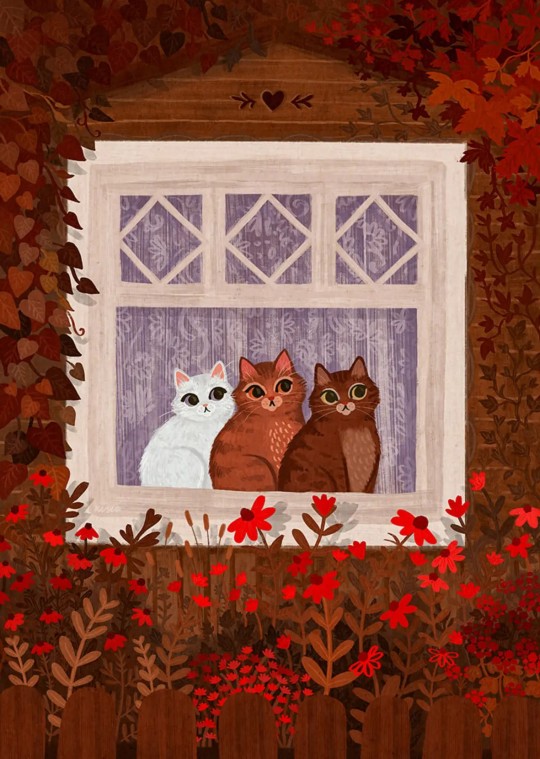
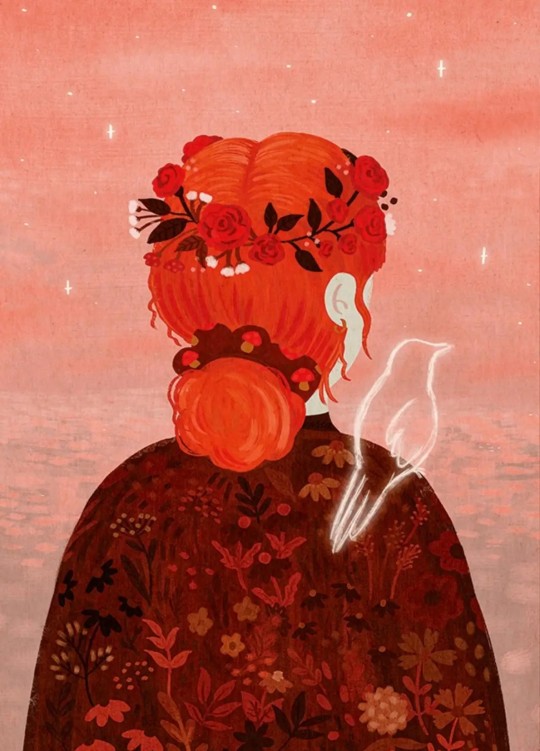


Monika Kister, Polish illustrator
#polish illustration#autumn season#polish illustrator#poland#autumn#autumncore#fall leaves#art#polish artist#cottage#cottagecore#autumn cottage#polska#cats of tumblr#cats#slow living#slavcore#cozycore#red aesthetic#hen#*
650 notes
·
View notes
Text


The famous duel between Jurko Bohun & Michał J. Wołodyjowski
by my beloved Polish artist-illustrator, Jan Marcin Szancer (1902-1973):
on the left: charcoal version from the "Ogniem i mieczem" Polish edition, 1954;
on the right: ink version from the "Ogniem i mieczem" Polish edition, 1963.
Polish Knight vs. Ukrainian Knight - choose your Hero or (better) love both!
It is a fan&didactic account, existing only for the Cossack Heroes glory and promoting Ukrainian & Polish heritage worldwide. Copyright belongs to the Artist/Museum.
#ogniem i mieczem#with fire and sword#trylogia#jurko bohun#michał jerzy wołodyjowski#henryk sienkiewicz#trylogia sienkiewicza#polish literature#polish art#jan marcin szancer#art#vintage illustration#polish illustration#trylogia sensem życia
52 notes
·
View notes
Text
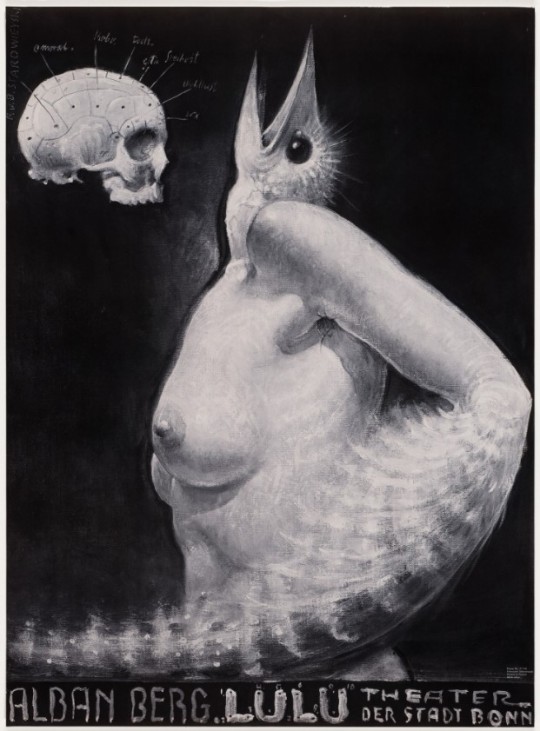
Poster for Alban Berg's opera Lulu by Polish illustrator Franciszek Starowieyski, 1980
#op#Franciszek Starowieyski#alban berg#lulu opera#polish illustration#polish posters#illustration#surrealist illustration#surrealism#polish art
57 notes
·
View notes
Text
#repost @przemyslawberestko Przemysław Berestko (Warsaw, Poland). Selection from Berestko's "Catzilla" series.

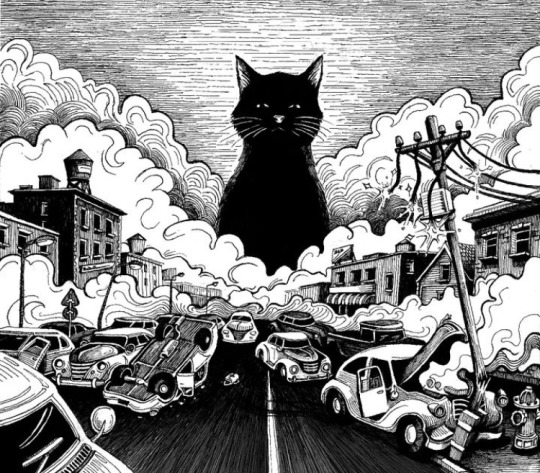

#Przemysław Berestko#catzilla#gato#cat#katze#illustration#chat#katt#kat#kedi#feline#ilustracion#ilustración#ilustração#polish illustration#animals in art#cats in art#animal illustration#ilustración animal
8 notes
·
View notes
Text
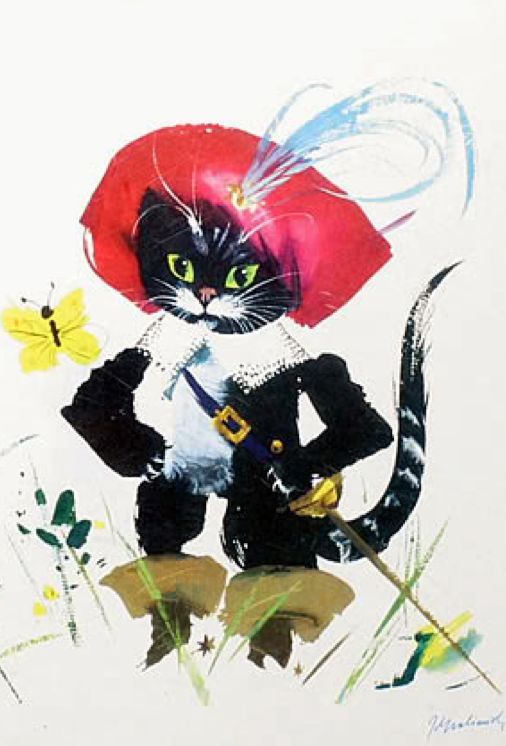
'Puss in Boots' by Polish illustrator Janusz Grabiański (1929-1976)
4 notes
·
View notes
Text
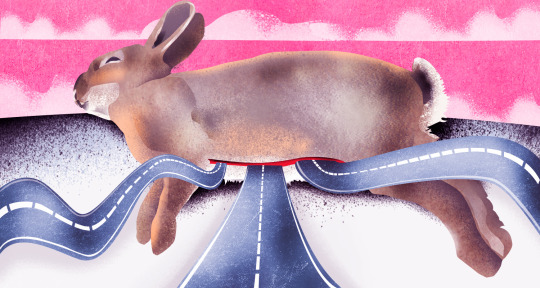
3 notes
·
View notes
Text
youtube
Poland (1916) Ambient Music
#poland#polska#warszawa#winter#cold#snow#polish art#polish tumblr#polishcore#polishposting#polish folklore#polish music#polish culture#polish cinema#polish core#polish stuff#polish literature#polish history#polish film#polish painters#polish posting#polish illustration#polonya#snowstorm#snow fall#snow aesthetic#snow art#winter aesthetic#winter art#winter goth
4 notes
·
View notes
Photo
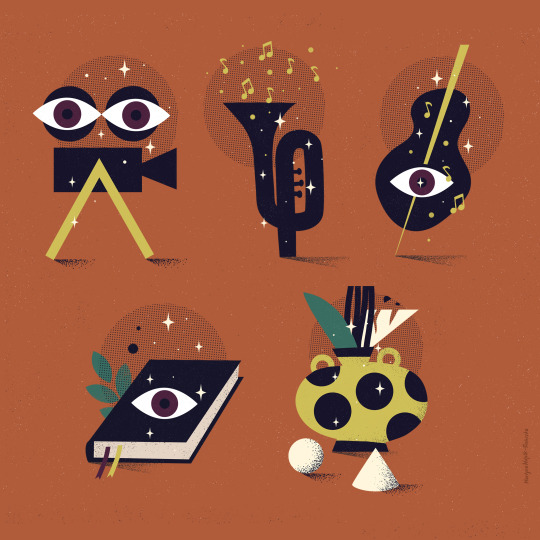
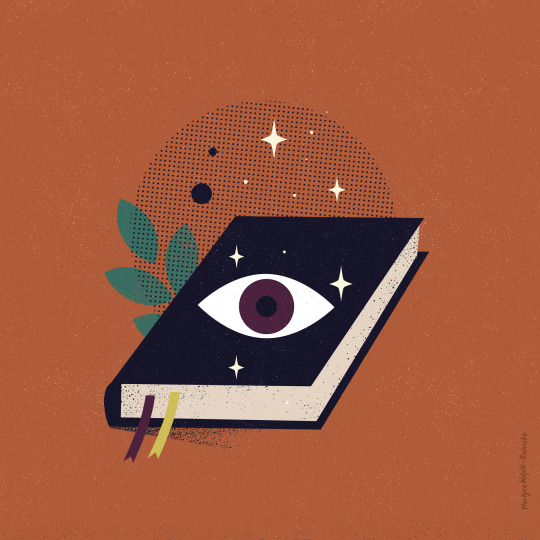
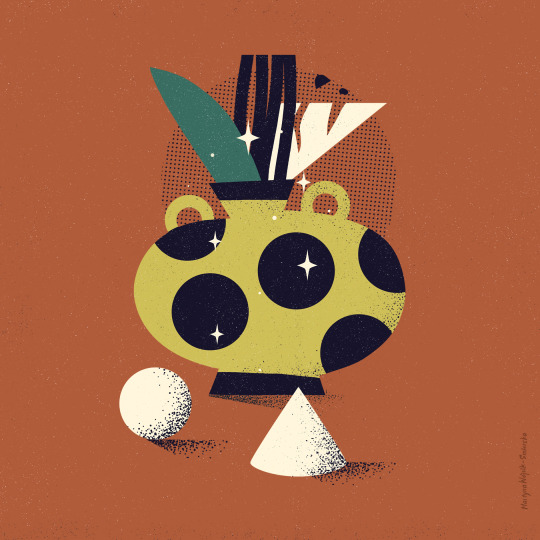
Series of illustrations for Kraków Culture - autumn
#martynawojciksmierska#martynawojcik#illustrator#Illustration#ilustracja#ilustrator#polish illustration#polskailustracja#grafika#poster#cover#print#drawing#plakat#polskiplakat#okładka#Krakow#krakówculture#festiwalfilmowy#festiwalmuzyczny#thebestpolishillustrators#autumn#graphic
17 notes
·
View notes
Text
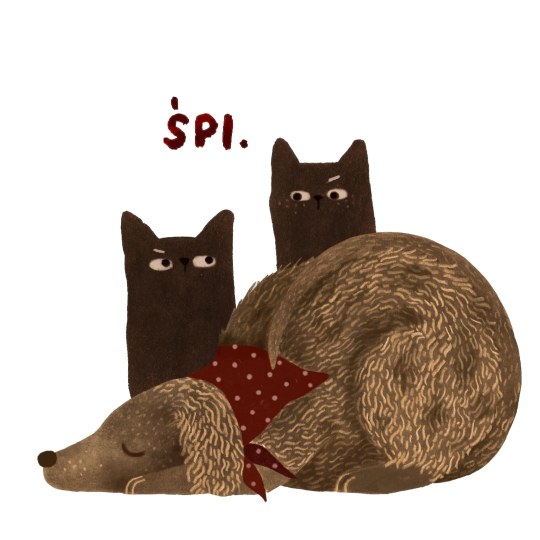
He's sleeping.
87 notes
·
View notes
Text



2022 Cyanotype art
#cyanotype#blueprint#sunprint#botanicart#illustration#polish illustration#botanical illustration#pressed flowers#flower art#longplaydream
4 notes
·
View notes
Text
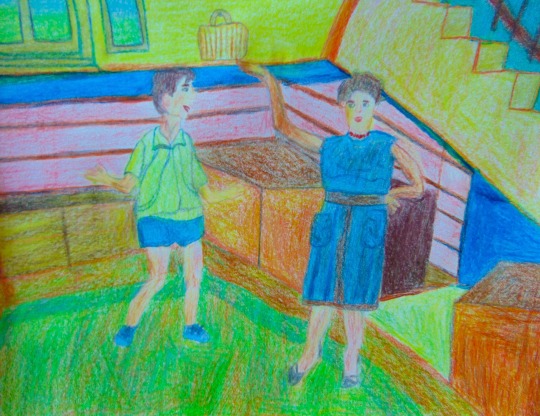
Family action scene.
Coloured pencils on paper. Example of book illustration.
#art#illustration#book illustration#polish illustration#artwork#drawing#coloured pencils#coloured drawing#picture#action#scene#figure#figurative#Family#movie#comic#polishart#interior#experimental
10 notes
·
View notes
Text
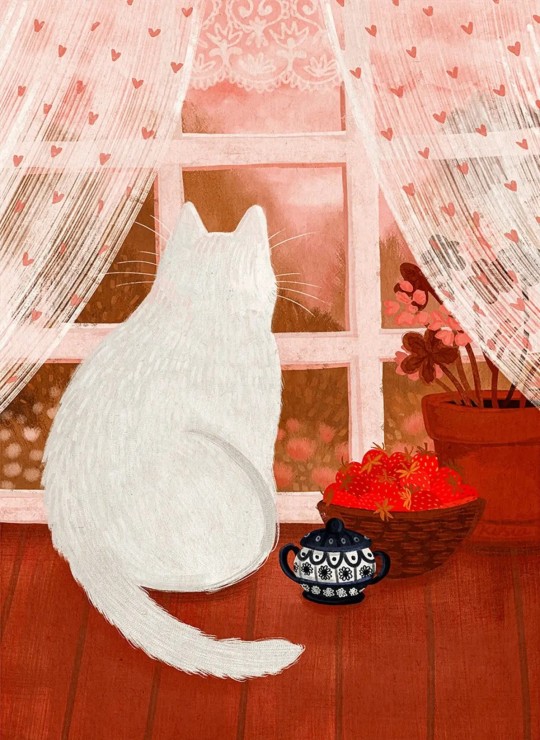
Monika Kister, Polish illustrator
#polish illustration#strawberries#strawberry#white cat#summer#pink aesthetic#bolesławiec#boleslawiec ceramics#ceramics#pottery#boleslawiec#kitchencore#slavcore#polishcore#polandcore#cozycore#art#catslover#catblr#illustration#*
218 notes
·
View notes
Text
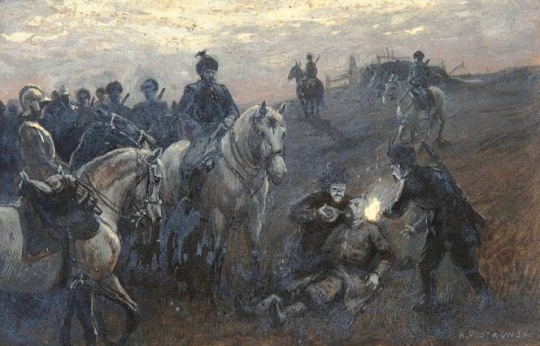
The first encounter of Bohdan Chmielnicki and Jan Skrzetuski in the steppe. From the ilustrations set for H. Sienkiewicz's novel "Ogniem i mieczem" by Antoni Piotrowski (1853–1924), ink and gouache, 1901.
From the collection of the Polish National Museum in Warsaw:
@wanderer-on-the-steppe, specially for you!
#ogniem i mieczem#with fire and sword#trylogia#henryk sienkiewicz#jan skrzetuski#bohdan chmielnicki#bohdan khmelnytskyi#polish literature#ukrainian history#polish art#antoni piotrowski#art#polish book illustration#polish illustration#trylogia sensem życia#trylogiart
42 notes
·
View notes